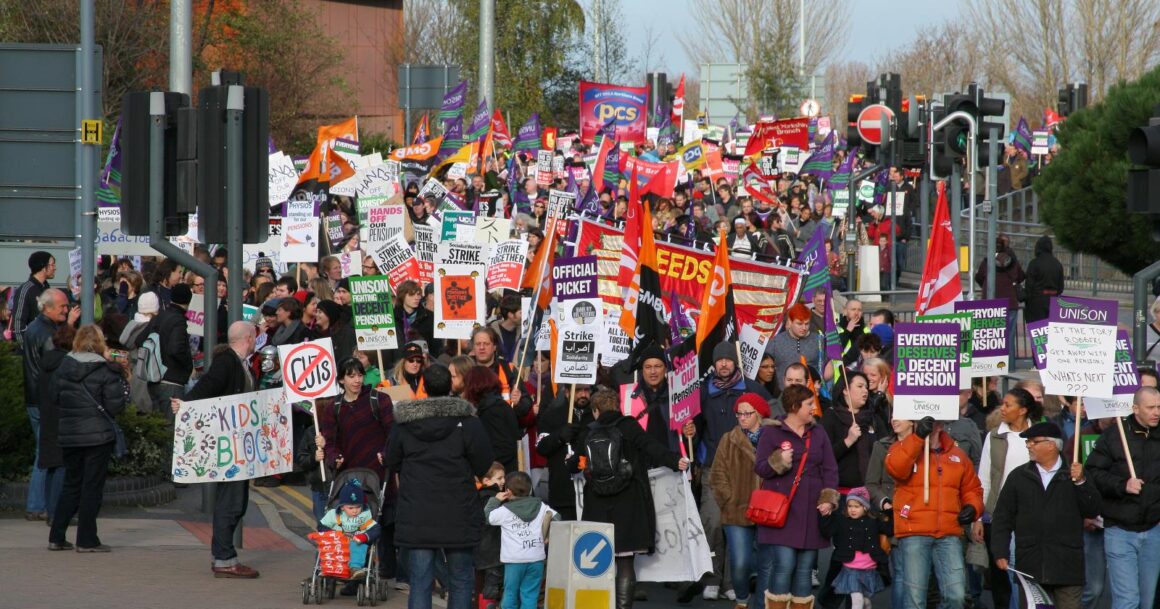

THE STRIKES that have dominated the headlines for six months represent a decade of pent-up anger.
Millions of workers, especially in the public sector, have seen their real take-home pay collapse by 20–25% under the Tories; now they’re asking us to take another 10–15% cut. The dam has burst.
Industrial action stands at a 30 year high, with a million strike days in December alone. January shows no sign of let up either. Rank & file activity has delivered mass pickets, rallies and demos, often impromptu. Solidarity groups supporting and linking up the strikes have sprung up across the country.
Watch your leaders
Not surprisingly union leaders are enjoying tremendous popularity, seen to be consistently winning the arguments against government ministers and right wing commentators alike.
But union members need to watch their leaders closely. Mick Lynch has praised November’s deal at ScotRail, as an example of the (Scottish) government allowing real negotiation. But that deal led to a meagre 4% rise for 2023–24 and 4% next year, i.e. a 10–15% real pay cut!
Similarly, Pat Cullen has repeatedly denied the nurses claim (RPI+5%) is worth 19% and publicly agreed to halve her members’ claim without any mandate whatsoever.
Now there is a real danger that the government and union leaders will try to defuse the action by negotiating a one-off non-consolidated payment on top of the Pay Review Board proposals, with the promise of further negotiation on the 2023–4 pay round.
The truth is that union leaders and members do not have the exact same interests. The trade union leaders and armies of full-time officials are a privileged caste of professional negotiators, whose salaries and contracts insulate them from the consequences of their refusal to lead a serious fight back. Their bottom line is a compromise that they can sell to their members. Our red line has to be a real pay rise.
Rank & file
That’s why union members must take control of the negotiations and, indeed, every aspect of the strike. To do that they have to hold regular workplace meetings, elect recallable delegates to strike committees and link up those committees regionally, nationally and across unions. They can not only organise picket lines, solidarity anti-victimisation action, but also demand the decisive say in the running of their strike.
This will inevitably involve a confrontation with the senior officials at some stage. This can be seen by the struggle inside the UCU, where the elected lay members of the Higher Education Committee’s demand for an indefinite strike has been blocked by the general secretary Jo Grady.
That’s why we need not just good executive members (Broad Leftism) but a rank & file movement, with clear political goals and a strategy to achieve them—with the union leaders where possible but without and even against them when necessary.